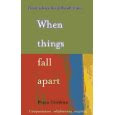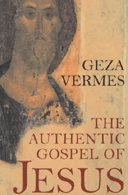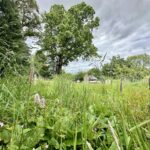Contrary to appearances, beginning with my previous post I am actually attempting to head towards writing about the underworld meditation from our last Wood Sisters day. But reflecting on it has led to many other thoughts, meanwhile the sacred cycle of the year rolls on and brings fresh preparations and reflections…
The perpetual huge pile of partly digested books beside my bed, has recently been topped by an eclectic mix of spiritual reading in preparation for Palm Sunday today. Top place has changed over the week from Buddhist Pema Chodron’s “When things fall apart” to Edward Hoffman’s “Opening the Inner Gates – New Paths in Kabbalah and Psychology” to Geza Vermes’ “The Authentic Gospel of Jesus….interspersed with readings from the Bible and from the Bardic Grade of the Order of Bards Ovates and Druids. (I’ve come to the conclusion over the years that, in matters of spiritual reading, it can be wise to draw upon more than one tradition at a time….it helps to offset a mental tendency towards fixed ways of thinking!)
This rich diet probably goes some way to explain why, when shocked awake in the night by the wild sound of cats fighting under the bedroom window in the bright light of the almost full moon, I felt very in touch with the ‘groundlessness’ of life. I’ve had a lot of apparent ‘grounds’ swept away in my own life in recent years and especially in recent weeks and sometimes I wake in the night, or even on a sunny morning like today and feel afraid and sad. Years of meditation practice has taught me how to just about be present with this, with some kind of acceptance and kindness. Although sometimes, it has to be said, I fall back into old habits of taking my discomfort out on my family or falling into despair and eating digestive biscuits to cover the pain.
Reading Matthew’s description of ‘The Triumphal Entry’ this morning, I felt no sense of joy or triumph but only sadness. For actually this passage marks the beginning of the end for the earthly Jesus. He enters Jerusalem in faith and hope and exits through despair and surrender to God and death on a cross. The palm lined path that we Christians imagine is an approach to an underworld of dark and difficult experience and death….and though many mythic stories hold in common with the Christian story the promise of resurrection…this liberation only comes through first facing the reality of groundlessness.
I feel great sympathy with and gratitude for Geza Vermes’ scholarly work on the historical Jesus. I find it most refreshing to cut through the endlessly replayed christian hype around the ‘Triumphal Entry’ with a good dose of historical fact. Vermes explains how it was common for people to ride into the Holy city for Passover and that “the Palestinian Talmud records that before Passover ass-drivers did flourishing business in carrying pilgrims to Jerusalem. In particular the rich preferred to ride on donkeys to the Temple mount and thus publicly demonstrate their higher social status.” (Pg 21)
This actually seems quite at odds with everything else we see about the historical Jesus as an itinerant rural teacher who actively eschewed wealth and status. Vermes points out how ‘the authentic Jesus’ didn’t use images of kingship and powerful leadership for God or himself, these are a later emphasis in Christianity. Jesus stressed rather a relationship with God as a loving father and his own leadership role as one of serving others. The historic Jesus had nothing to prove in entering Jerusalem. He was a faithful Jew among other Jews simply entering the Holy City for Passover, probably with no awareness of the suffering that lay ahead. He wasn’t a religious revolutionary or a political warrior but rather upheld the centrality of the Torah and a way of non violence.
It’s really rather a relief to read Vermes’ words that “In order to associate the event with a messianic prophecy, Matthew rewrote Mark, and introduced a she-ass as well as her colt. His story is laboured and artificial.” It never made any sense to me as a child how Jesus would have written these two donkeys….surely he would have fallen through the gap between them! It’s like the emperor’s new clothes and the child in me experiences the relief of finally having a reality that was denied, acknowledged….Matthew “deliberately overlooks that in the poetry of Zechariah ‘a colt, the foal of an ass’ is a mere literary parallelism…..No native Semitic speaker would have made such a mistake.”
So where does this leave me on the morning of Palm Sunday? With an inner picture of a ordinary and extraordinary man who probably walked quietly into Jerusalem with his friends, but would soon be facing difficulty and death. A faithful man fully engaged with the uncertainties and injustices of life in a way that gives me courage to face our own times of insecurity. Perhaps as the Buddhist teacher Chogyam Trungpa says “Chaos should be regarded as extremely good news”









Leave a Reply